On a warm spring day in 2017, 32-year-old Sam Todd was standing in the kitchen of her Ballarat home in country Victoria when she realised she could no longer maintain the facade she had so carefully cultivated.
Three months earlier, she’d given birth to her second daughter, Heidi, a contented baby who slept well and fed beautifully. Sam knew she’d been lucky with Heidi. But she didn’t feel lucky. She felt exhausted and broken.
That day, her husband Josh, an accountant, had stopped at home to have lunch. The children were both – miraculously – asleep, but when Josh got up to clear his plate and head back to the office, Sam stopped him. “You can’t go,” she said, her face stricken.
“Why not?” he replied, puzzled.
The words fell out before Sam could stop them. “I don’t want to be here anymore.”
‘You can’t go,’ she said, her face stricken.
It took a moment for Josh to understand what his wife was saying, but once he did, things moved quickly. He called the Perinatal Anxiety & Depression Australia (PANDA) helpline. A crisis team was sent out, and, within days, Sam was admitted to the local mother and baby unit, where she spent two weeks, before being released with a comprehensive mental health plan and medication.
Now Sam can see that the darkness she felt that afternoon marked the lowest point of a descent into peri-natal anxiety that had been building for years – ever since the panic attacks that came while she was pregnant with her first child, Natalie. “My heart would beat really fast,” she says. “I’d feel dizzy and I couldn’t think straight. I was out of control.”
Post-natal depression is not new, but it’s only relatively recently that peri-natal anxiety – that is, moderate to severe anxiety during pregnancy or in the first year after childbirth – has been recognised as a distinct illness, with different symptoms and behaviours. Where post-natal depression tends to be characterised by low mood, post-natal anxiety is almost the opposite, causing women to feel“hyper-vigilant, and unable to rest,” says PANDA CEO Terri Smith.
Most women would agree that a certain amount of anxiety during pregnancy and post-birth comes with the territory, but peri-natal anxiety is something else. “It was really scary,” says Sam, whose anxiety manifested as an obsessive concern with Natalie’s development, her own inability to breastfeed and countless other issues. While counselling helped, these thought patterns returned full-force with Heidi’s birth, until Sam felt depleted, depressed and eventually, suicidal.
Today it’s estimated that one in five new mothers will suffer anxiety or depression during the perinatal period — a staggering figure when you consider that there are 300,000 births across Australia each year.
But perhaps it shouldn’t be surprising. After all, the women now entering motherhood are millennials (the 20- and 30-somethings born between the late ‘70s and ‘90s) who are widely recognised as the most anxious generation in history. To top it off, motherhood is, by many accounts, more pressurised than ever.
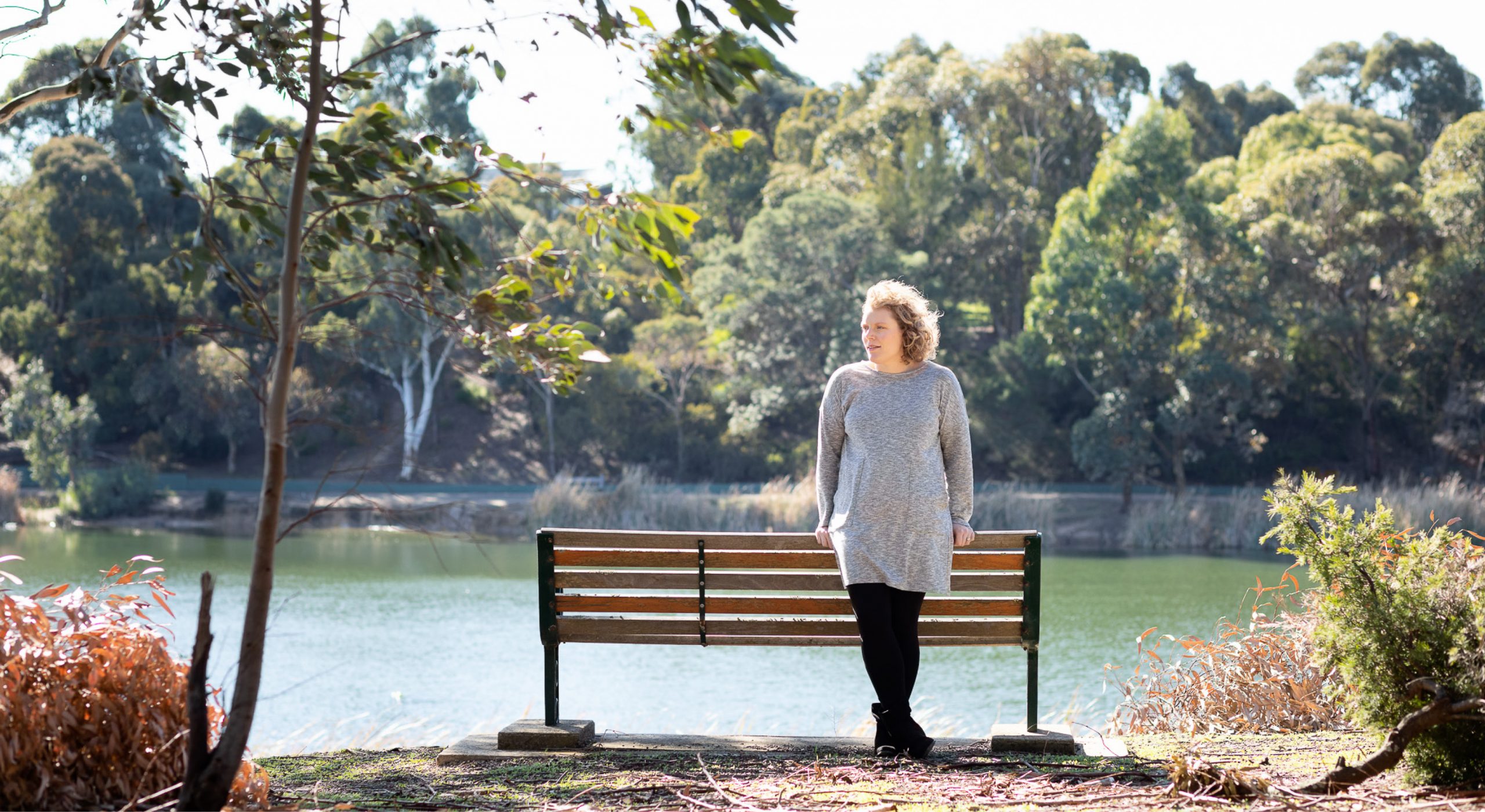
Having recovered from her own battle with peri-natal mental illness, Sam is determined to raise awareness and encourage other women to speak up. Her voice softens with love and pride when she talks about her children, now aged two and four, but she remembers the fear and isolation she once felt. “If I hear anyone’s going through a hard time, I’m onto it. You have to put your hand up and ask for help.”
Unfortunately, many women and mothers-to-be have never heard of peri-natal anxiety, says Smith. “We know that 60 per cent of the callers to our helpline identify symptoms of anxiety, so it’s actually more common than the talk of depression. But women tell us that they just weren’t expecting [peri-natal anxiety]. We commonly hear, ‘Well you know, I wasn’t curled up in a corner crying. I thought I was ok.’ So community awareness of perinatal anxiety is really poor.
“Anxiety, particularly during pregnancy, is not a good thing for the development of the baby. So getting help, soon, is really important. But you can’t get help if you don’t know something’s wrong.”
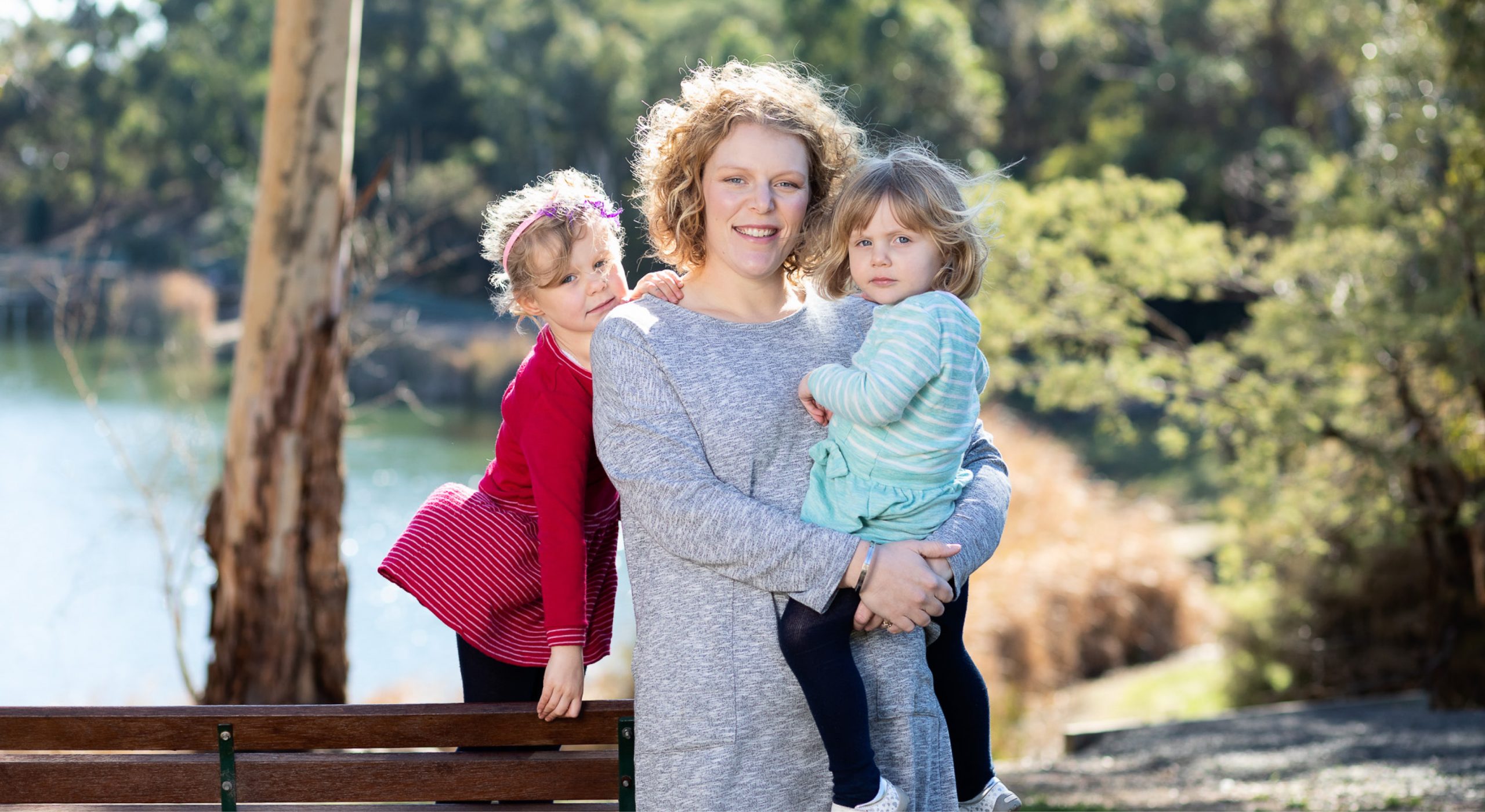
Nicole Muscat certainly never imagined that anything would go wrong in the aftermath of her second pregnancy. A pragmatic and no-nonsense nurse with no history with mental illness, Nicole had breezed through motherhood the first time around, and fallen instantly in love with her daughter, Matilda. When she fell pregnant again, she expected it to be just as blissful.
Instead, a few months into the pregnancy, Nicole began to wake at night with a tightness in her chest that left her gasping for air. “I’d wake up unable to breathe, and I’d just break down,” she recalls. “I’d spend nights crying, and my husband would try and console me and comfort me.”
Determinedly practical, Nicole put the episodes down to hormones and a lack of sleep. “I thought, ‘Once I have the baby I’ll be fine. My body will get back to normal and all these things will stop.’”
But as soon as Ollie was born, and the doctor placed him on her chest, Nicole knew something wasn’t right. “I felt that I knew he was mine,” she says, choosing her words carefully. “But I didn’t feel the love and the yearning and the connection that I felt instantly with my daughter.”
I didn’t feel the love and the yearning and the connection that I felt instantly with my daughter.
Over the next few weeks, the sense of connection she craved remained elusive and in the meantime, she and Ollie were struggling with breastfeeding. Nicole became fixated on Ollie’s sleeping and feeding, in the hopes that once these improved, so, too, would their bond. Instead, what followed was a rising tide of anxiety and agitation that threatened to engulf her.
At night, Nicole found herself unable to sleep, sometimes lying awake for hours worrying about the following day’s plans. The prospect of a simple excursion left her heart racing, and it soon became easier to cancel plans rather than endure the stress that inevitably accompanied any outing. But even at home, Nicole couldn’t relax. She was irritable with Jason and the children, whose cries began to tear at her like “nails down a chalkboard… the sound would almost make me recoil” and she became too tense and nauseous to eat.
By the time Ollie was seven months old, Nicole had lost 10 kilograms and was only sleeping one or two hours a night. By then, her husband knew something wrong, and suggested she spend a day at a spa with a girlfriend to relax. But it was there, while on the massage table, that Nicole suffered a serious panic attack, and the following day she rang the PANDA helpline. After months of keeping up appearances, the two-hour phone call was “the most liberating thing I’ve ever experienced,” she says. “I was scared and confused. I knew something was wrong but I didn’t want to admit it to anyone else. Everyone thought of me as super mum because I was able to manage everything. I seemed so relaxed and calm. I didn’t even want to tell my GP, because my GP knew me as this nurse who had her life together. I didn’t want to let her down.”
I was scared and confused. I knew something was wrong but I didn’t want to admit it.
PANDA convinced her to see her GP, and a few weeks later Nicole was admitted to the Perinatal Mental Health Unit at Mitcham, where she was prescribed medication, including an anti-depressant and an anti-psychotic, and where she remained for a month.
Today, Nicole’s relationship with her children as is as strong as ever. She describes Tilly as an “energetic, bubbly” four year old who loves unicorns, ballet and music, and Ollie as a headstrong and active boy who is obsessed with trucks, dancing and playgrounds, saying:”I love them to bits. There’s lots of cuddles and snuggles, and every moment’s precious.
Looking back she points to her insomnia, a months-long bout of hyperemesis gravidarum (severe morning sickness) and, later, painful pelvic instability that kept her from exercising as some of the key contributors to her inability to maintain her mental equilibrium.
Experts say the causes of peri-natal anxiety are varied and complex – much like the illness itself, which may present as panic disorder, social phobia, obsessive compulsive disorder or generalised anxiety disorder.
Take post-natal social phobia, says Professor Marie-Paule Austin, head of psychiatry at The Royal Hospital For Women In Randwick and the St John of God chair of perinatal mental health at the University of NSW. “You put a new mum with a new baby in a situation where they can’t control the baby when they start to cry. Perhaps it’s in the middle of a shopping mall or a social setting. People, of course, turn around. These mothers can’t cope with that scenario. They don’t step out the front door because that becomes too threatening.”
Dr Austin says that up to 60 per cent of women who are diagnosed with peri-natal anxiety have a pre-existing condition. “Maybe they’re not taking medication, maybe they’ve never sought help… but they may have an anxious personality type, and are prone to anxiety and perfectionism.” Throw a lack of sleep into the mix – “some people are highly sensitive to sleep deprivation” – and the scene is set for a rough post-natal period.
In general, Dr Austin says there is a complex cocktail of biological, psychological and social factors are behind peri-natal ill-health. “If there’s been a major stress – say, they’ve had a miscarriage or perinatal loss in the past – that’s obviously going to increase the chances of peri-natal anxiety. It’s also about what you inherit from your family in terms of genes.
“We also know that there are abnormal levels of adrenalin and noradrenalin pumping around people who are prone to anxiety. They probably do have subtle neurotransmitter imbalance at some level, which is why certain medications work really well for them.” Biological factors are thought to be particularly relievent in the case of post-natal psychosis, an extreme mental illness where new mothers suffer delusions and lose their grip on reality.
Our busy, digitally draining lifestyles mean we’re already pre-disposed to anxiety, says Austin. “Our current living circumstances in the 21st century do lead to greater stress on everybody, I think.”
It’s true that modern motherhood today is vastly different compared to the experience of previous generations. Today’s mothers are older (and statistically more likely to give birth while in their 30s, compared to their own mothers who typically had babies in their 20s). They are also more likely to return to work after having children, with some studies suggesting that this transition and the new division of labour between parents can trigger depression.
By some accounts, modern motherhood is also more proscriptive (think of the extensive advice and long lists of prohibited foods given to pregnant women, along with the pressure to breastfeed) and more relentless; one study found that working mothers today spend as much time with their children as stay-at-home mothers did in the 1970s. Meanwhile, today’s generation of mothers are less likely to live close to family and, of course, more influenced by social media and the internet, which can offer a warped view of how motherhood should look.
“The world has definitely changed,” reflects Terri Smith. “Where I grew up, I lived on a corner, and there were three houses on that corner and those three women were all home, all having babies together, all chatting over the fence. So you had a cohort. Today, we don’t have that same physical cohort.”
Sydney mother and postpartum doula Naomi Chrisoulakis wholeheartedly agrees. The former journalist retrained as a doula following her own experience of minor post-natal anxiety with daughter Margot, now three.
“I really felt a massive shock after the birth of my child. I was completely unprepared for when she came home from hospital,” she recalls. “I thought, ‘I’m a capable woman. I’ve got this’. But I just felt completely out of my depth. I was panicky and Margot would be crying in the evening. And nothing anyone could do would stop it. Every time I saw the sun going down I felt like I was walking into a horror movie, like I was afraid.
“And it really opened my eyes to what’s happening in our culture, which is that there’s a huge amount of attention on pregnancy and birth, but there’s a veil over the postpartum period, and I think it’s deeply problematic not to recognise motherhood for the life-shaking event that it is.”
Today, Naomi offers postpartum assistance including fresh food deliveries and emotional support to new mums across Sydney via her business Cocoon by Naomi. She believes that as a society we’ve “forgotten to look after mothers”. She points to the rituals and postpartum traditions of many non-Western cultures – such as the Chinese tradition of Zuo Yue Zi or “sitting in period” where women stay home for a month after giving birth – which place more emphasis on new mothers’ wellbeing.
Perth mother Hannah Warren believes she, too, drastically underestimated the emotional demands of motherhood, and that social isolation played a major role in the anxiety she experienced after the birth of her son Henry. “I think I had considered the lack of sleep and the physical changes to having a baby but I didn’t expect the social and emotional changes.”
Originally from New Zealand, Hannah and her partner, Dmitri, were living in Mt Isa when she unexpectedly fell pregnant at 22. “[The anxiety] started for me when I was pregnant,” she says, recalling the long drives into the country she took when her distress reached unbearable levels. She even contemplated suicide once the baby was born.
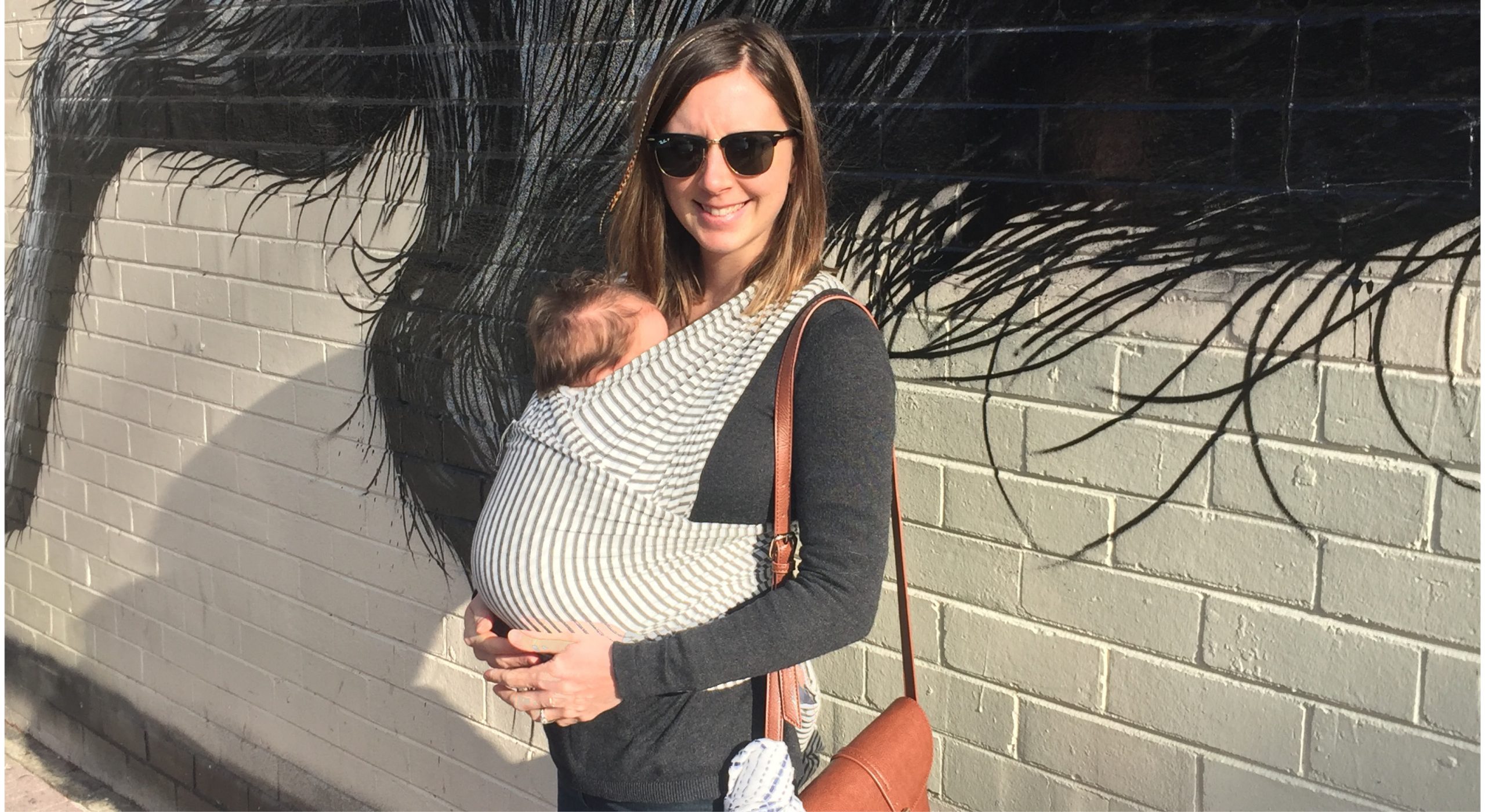
But once Henry* arrived, Hannah managed to push these dark thoughts aside. Her parents came to stay from New Zealand, followed by Dmitri’s, and for the first three months she battled through. “I was feeling numb I guess. But then there were days when that I felt ok, and I would even say that I was happy. And because I had those days, I thought, ‘Well, I can’t have depression or anxiety then. I spent a lot of time reading other women’s stories [on the internet] trying to see if what I was feeling was normal.”
But when both sets of parents flew home to New Zealand and Henry’s sleep hit a difficult patch at around four months, Hannah began to feel unwell again. “I remember feeling really angry. I’ve never been that angry before.” In an attempt to quash the anger, Hannah began to dissociate, and would sometimes find herself sitting on the floor of her son’s room as he cried, unable to move or help.
I remember feeing really angry. I’ve never been that angry before.
A move to Perth when Henry was six months old, together with Dmitri’s new job as a Fly-In-Fly-Out mining operator, proved to be the final straw, and soon after Hannah was admitted to a mother and baby unit.
Today, Henry is five and Hannah has a two-year-old daughter, Rose. She is matter-of-fact about her experience, but her voice cracks when she reflects on those early months with Henry and the precious time they missed out on. “At the time I would have said that I did connect with Henry. But now that I’ve had a second [baby], I definitely didn’t, “ she says, her voice trailing off.
Research into the long-term effects of a mother’s post-natal mental illness on babies is mixed. Some experts believe that, during pregnancy, a mother’s stress hormones can travel across the placental barrier, ultimately impacting the baby’s development. But Professor Austin says that despite several large-scale, longitudinal studies it been impossible to tease out whether symptoms exhibited by babies are due to the mother’s anxiety levels during pregnancy or simply genetic inheritance.
Low birth weight and early delivery are other possible outcomes, says Professor Austin, along with attachment issues. “In the first year or two, if the mother’s overly anxious then that will interfere with attachment.”
Consequently, the early detection of peri-natal illness has become a healthcare priority, and Dr Austin has been instrumental in the creation of national guidelines for screening pregnant women for anxiety and depression.
But there are gaps in services, particularly for at-risk women, such as those facing homelessness or domestic violence. In NSW, for instance, there are no publicly-funded mother and baby units for women suffering severe perinatal anxiety or depression. As a result, new mothers who can’t afford private care are separated from their newborn babies in order to receive in-patient psychiatric treatment, or they’re forced to receive treatment as an out-patient, otherwise relying on family and friends to support them. “We’re the most populous state, with the biggest birthrate and these [units] are desperately needed,” says Professor Austin.
Shortly before the recent NSW election, Liberal politicians promised to fund two public mother-baby units, but Professor Austin is wary. “Let’s see what happens. We’ve been advocating for this for 30 years so I don’t want to hold my breath on that.”
For Terri Smith, the priority is raising awareness and combatting stigma. “It is a serious illness and I don’t think we have recognition of that, still.” She would also like to see more frequent assessment during pregnancy, and more training for the health workers who deliver those screening tests to ensure they notice even the subtlest signs of ill health. “You can’t get through pregnancy without hearing about gestational diabetes,” she points out. “You’re tested for it. It’s a serious matter. Everyone’s quite focused on it. But actually with perinatal mental health – anxiety or depression – both are more common than gestational diabetes.”
Smith also says we need to tackle the stigma surrounding mental health early on in motherhood, explaining that 74 per cent of women who call PANDA only seek help once they’ve reach crisis point. “That’s so frustrating to me. Get help – there are places to go.”
Nicole Muscat agrees. “At the time you feel like you’ll never get there, but you will get there. You will get better… and your kids will be ok, too. My relationships with my kids are perfect, amazing. You just have to ask for help.”
Do you need help with postnatal anxiety or depression? Call PANDA on 1300 726 306




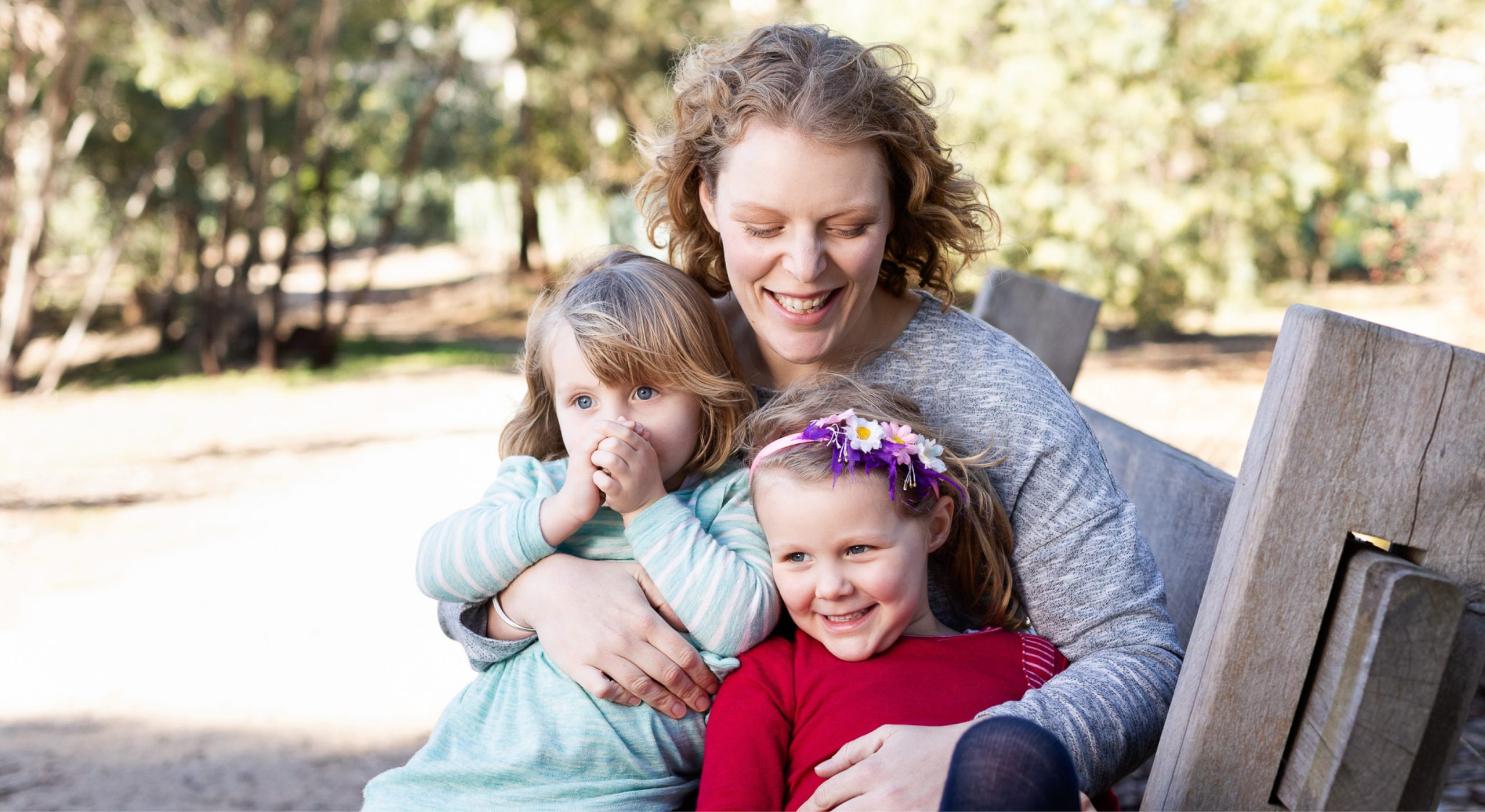
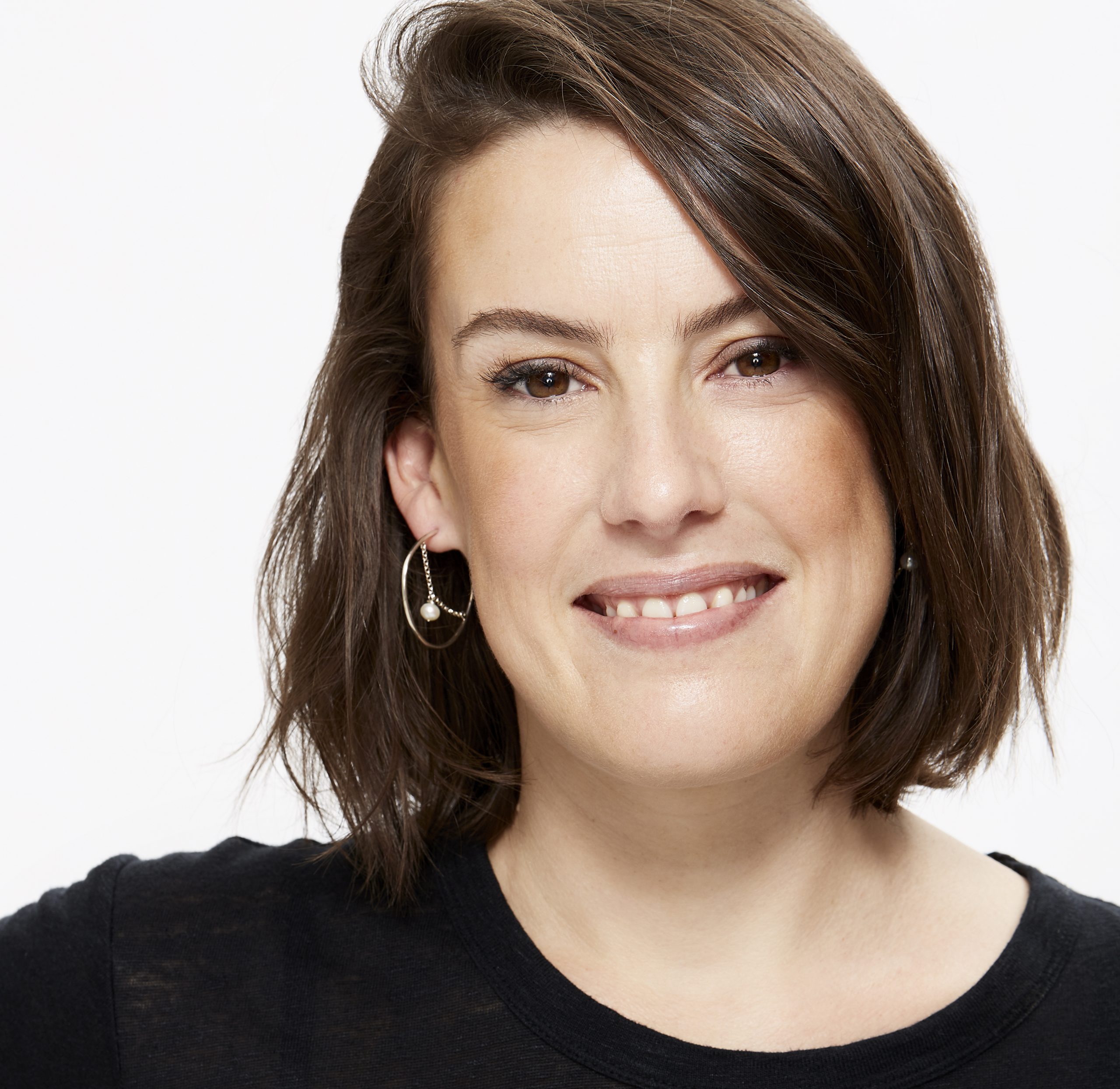


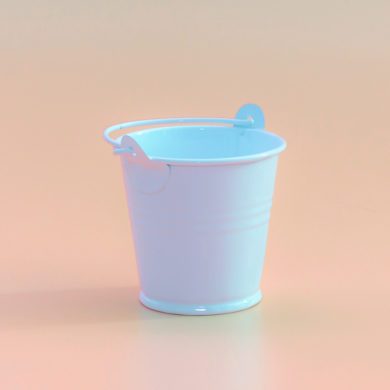

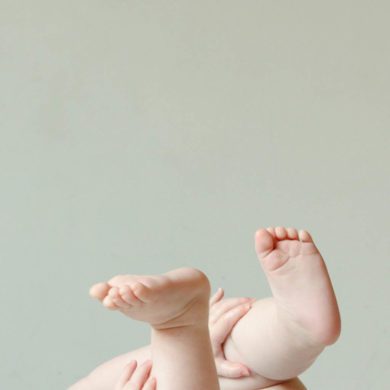


2 Comments